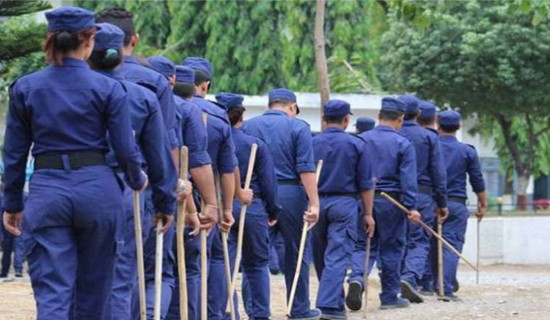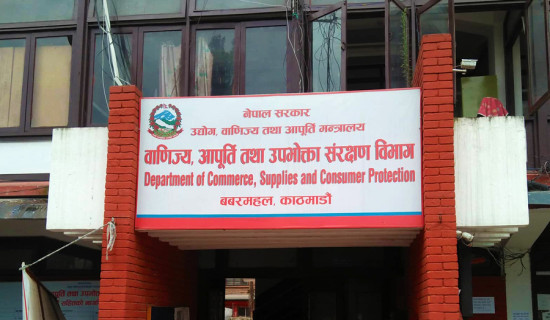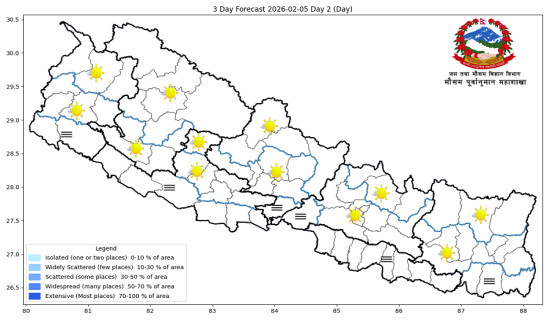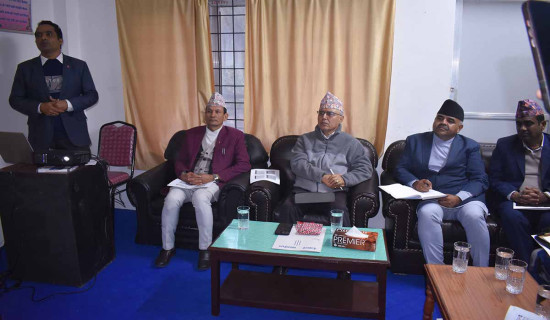- Thursday, 5 February 2026
Migrant Workers' Woes
High unemployment rate, lack of economic opportunities and sense of discontent intensified by unequal distribution of resources have rapidly accelerated the labour migration from Nepal to different countries. Remittance sustains Nepali economy but migrant workers are under-valued, their voices are unheard and their hardships remain unaddressed. Most of the migrant workers are compelled to do menial labour intensive jobs such as construction workers and domestic help. They are susceptible to long working hours, unhealthy and hazardous working conditions, and even abuse from employers, but fear of losing job and obligation to provide for the family back home does not let them raise strong voice for their inherent rights.
Migrant workers face the problems of contract breaches and recruiting companies confiscate their passports so that they can reduce migrant workers to modern day slaves and exploit their labour. Every other day body of migrant worker arrives in coffins at Tribhuwan International Airport, but the government authorities appear not to listen seriously to the plight of those underclass whose labour makes the revenue of the country. The deaths in inhospitable and hostile conditions, imprisonment, sentencing and stranding of Nepali migrant workers en route to destinations or during work hours bring home grief, separation and despair to their family members.
Although migrant workers are protected by the international labour law, they hardly get any orientation about labour rights, terms and condition of their work, pay and holidays so that they can protect themselves from exploitation and abuse before going abroad for employment. The migrant workers going abroad through government channels are less likely to be exploited compared to those who fall prey to the cunning manpower agencies who take huge sum from them luring them with tall promises of lucrative jobs. Pre-departure orientation about labour law, prior knowledge on possible abuse and exploitation and measures to complain to the authorised agencies and Nepali diplomatic missions when needed, to a certain extent could reduce the hardships the migrant workers face.
A news report published in this daily on Monday says that about 18,000 youths have migrated abroad for employment from Sindupalchowk district alone in the last fiscal year, and of them 8,000 are women. What's more, among them, 90 per cent of women belong to indigenous communities. Language barrier, social isolation, cultural differences and separation from children and family, exploitation and in some cases physical and mental stresses take toll on their health and wellbeing. Psycho-social counselors opined there has been surge in the number of complaints from women migrant workers that emanates from the hardships they face in host countries but due to the economic hardships and lack of future prospects in their home country compel them to go abroad. We frequently come across the news of female migrant workers working as domestic help in the Gulf countries facing sexual abuse and torture, but the rate of the exodus of migrant workers has not dropped.
Nepal needs to enhance its diplomatic efficiency and focus in addressing labour grievances and concerns in the destination countries. This calls for strong initiatives to address the hardships and exploitation faced by migrant workers abroad. Hardships faced by migrant workers can only be solved only through strong political willpower. But the ultimate goal of the government should be to create employment opportunities within the country and retain youths from going abroad for work.
















